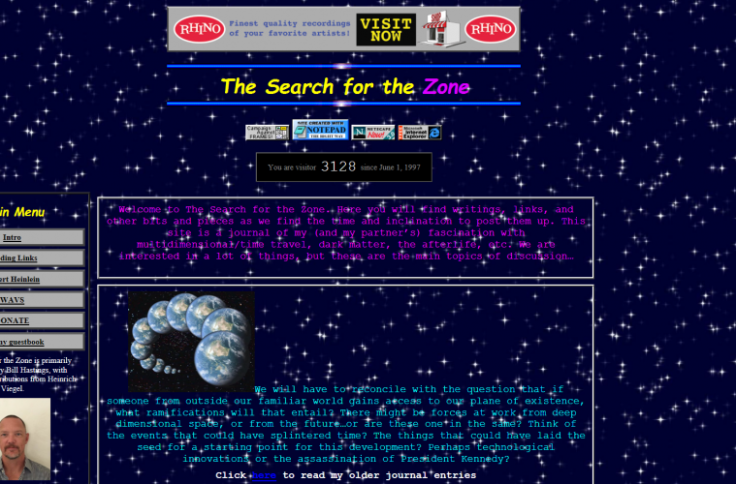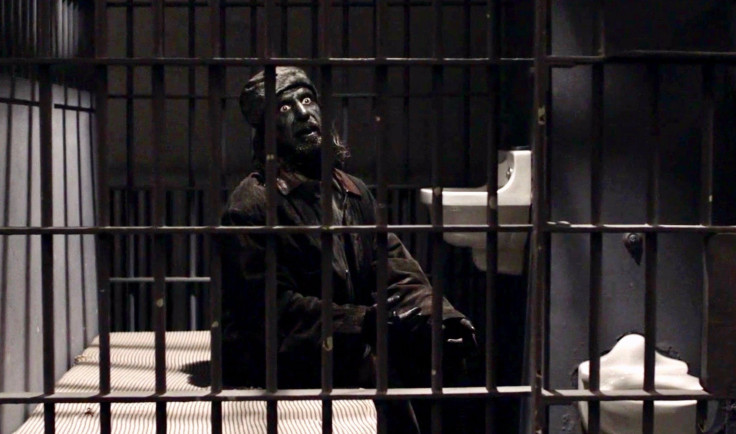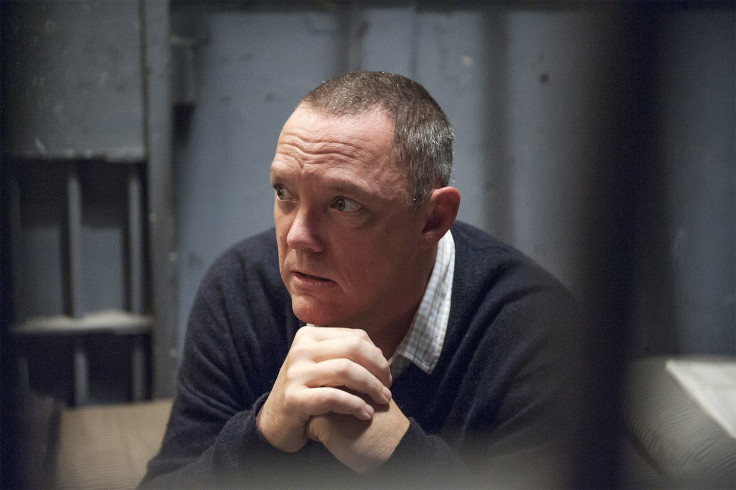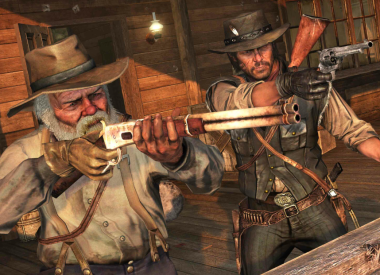“Welcome to the search for the Zone,” a glittering Geocities-like blog, begun in 1997, opens. The site’s a fiction, written by a Twin Peaks character, school principal Bill Hastings (Matthew Lillard). And while it mostly seems to exist to promote the Twin Peaks soundtrack, The Search for the Zone is loaded with hints about the inner workings of the show, including a surprising connection to a sci-fi grandmaster’s 1941 serial novel: Robert Heinlein’s Orphans of the Sky.
“This site is a journal of my (and my partner’s) fascination with multidimensional/time travel, dark matter, the afterlife, etc. We are interested in a lot of things, but these are the main topics of discussion…” The Search for the Zone opens. What follows is their “evidence” for a kooky multidimensional theory that, in the world of Twin Peaks (and maybe even in our own), just so happens to hold some truth.

Among (several broken) links to crank-ish astrophysics, many-worlds theory pop science, Nikola Tesla ephemera and ghost stories, one resource stands out: a whole section of the site devoted to “Heinlein Links.” They lead to some impressively comprehensive overviews and scholarship covering the sci-fi writer’s voluminous output. But the fictional Hastings narrows our focus considerably, writing, “Science Fiction has been a source of enjoyment for me since I was ten years old, when I read Orphans of the Sky.”
In May of 1941, Astounding Science Fiction published the novella “Universe,” which was followed in October by its sequel, “Common Sense.” The combined story was published as a “fix-up” novel, Orphans of the Sky, in 1963.
In Orphans of the Sky, the world is divided into humans and mutant “muties.” The humans live on the lower decks in an agricultural society tightly regulated by a priesthood of “scientists.” Muties live on the upper decks, reportedly in a state of violence and chaos. The “world” they share is actually an immense colony ship (Heinlein is one of the first sci-fi writers to write about generation ships), though that fact’s been forgotten for generations. For the residents of Vanguard, the metal skin of the ship is the outer boundary of the entire universe.
Are you beginning to see how this applies to the Twin Peaks’ cosmology? The universe is not what it seems. Our perspective is so outrageously narrow, our understanding so occluded, that we’re not seeing the real universe at all. This proves particularly poignant for Hastings, whose meddling in the larger universe, both beyond and coterminous with Earth, leads him to a dark place: accused of gruesome murder and stalked by evil beings birthed from the heart of the atomic bomb. The influence of Orphans of the Sky lead Hastings to believe his investigations into the unknown wouldn’t end with so much terror and violence.

Toward the end of Part One, “Universe,” the leader of Muties shows a promising scientist-to-be the secret of the very top deck: the Main Control Room and it’s holographic imager. What he sees, delivered in the purple prose characteristic of Heinlein’s earlier pulp novels, changes the young man’s life.
“Light after jeweled light, scattered in careless bountiful splendor across the simulacrum sky, the countless suns lay before him — before him, over him, under him, behind him, in every direction from him. He hung alone in the center of the stellar universe.
‘Ooooooh!’ It was an involuntary sound, caused by his indrawn breath. He clutched the arm chair hard enough to break fingernails, but he was not aware of it. Nor was he afraid at the moment; there was room his being for but one emotion. Life within the ship, alternately harsh and workaday, had placed no strain on his innate capacity to experience beauty; for the first time in his life he knew the intolerable ecstasy of beauty unalloyed. It shook him and hurt him, like the first trembling intensity of sex.”
This sounds more like what Hastings wanted from his supernatural research. Just like Hugh in Orphans, the thrill of sex is packaged up Hasting’s search for the Zone — the unnamed “partner” mentioned on the site is Ruth Davenport. The school librarian Hastings was having an affair with, Davenport’s head was found in her bed, atop the body of an unknown man (later revealed to be cosmic traveller, UFO expert and Bobby’s dad, Garland Briggs). Hastings imagined himself to be on a sexy sci-fi adventure, but the larger universe doesn’t operate on the same principles as a paperback.
Hastings should have looked more closely at the ignorance of Orphans characters like the two-headed Joe-Jim, who speaks with authority on a universe he’s only beginning to dimly fathom. “There’s lots of room out there. Space. It’s big. Why, some of those stars may be as big as the ship — maybe bigger,” he tells the young scientist Hugh. Better to be methodical and precise, like FBI agents Tammy Preston, Gordon Cole and Albert Rosenfield, or Bobby and Hawk of the Twin Peaks Police Department.
The universe of Twin Peaks contains consciousnesses, motives and levels of existence intersecting and outside of anything within our narrow conception of reality. Part 8, which first aired June 24, soaked us in the brain-breaking harmonies and dissonances outside of, yet strangely interweaved with, human affairs. The episode takes us back to July 16, 1945, when the US Army detonated the first atomic bomb (“The Gadget”) in the desert outside of Socorro, New Mexico. Twin Peaks takes us on inside the mushroom cloud, down to the atom and beyond, to levels below the quantum foam, the foundation of our universe as we currently understand it, where pale monstrosities float in null-space.
Oddly enough, the importance of revelation in Orphans of the Sky is most paralleled by the mundane adventures of Agent Cooper, rather than supernatural events in the show. After the malevolent entity BOB hijacked his body, Agent Cooper spent 25 years in the extradimensional Red Room. In Twin Peaks: The Return, he escapes to spaces that exist beyond and on top of our plane of existence, where order is hard to discern, with oceans of darkness and weird rooms with weirder devices. But eventually he finds his way to Earth as we’d recognize it, where he inhabits the body of Dougie Jones. Cooper no longer has any memory of how to be human, let alone an FBI agent. Everything that’s mundane to us is revelation to him, whether it’s coffee or a statue in a public square. After an eternity in a single room, he is experiencing a whole new world: ours. Orphans of the Sky is hardly the key that unlocks Twin Peaks. But it is a pulpy exploration of some of the same ideas.



















